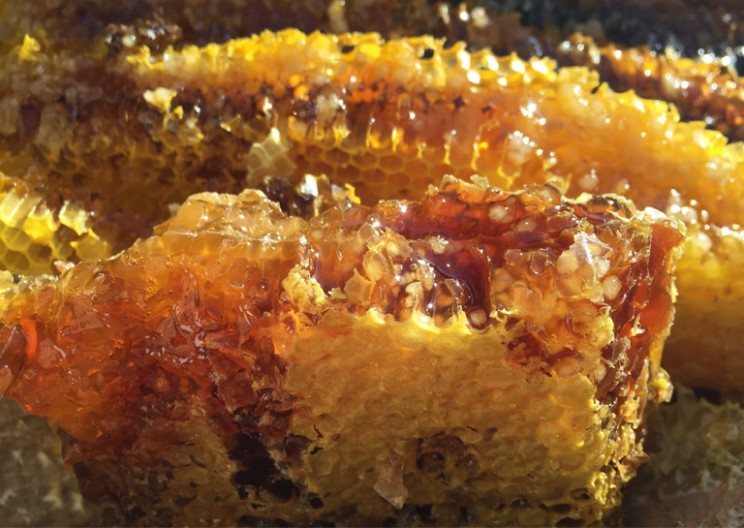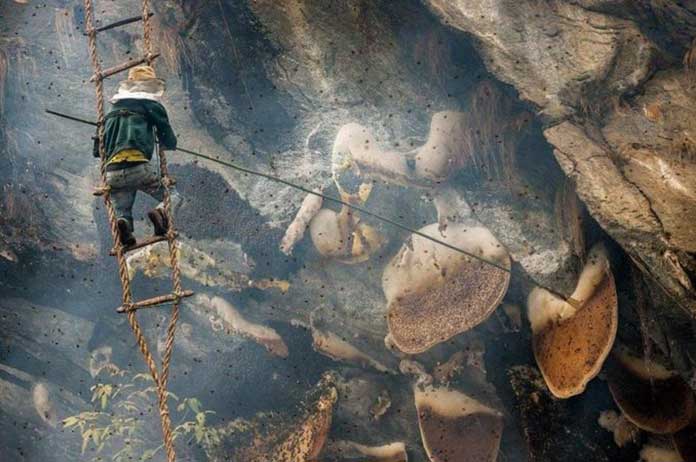Sucker for honey? There’s a rare type of honey harvested in Nepal that can get you high as a kite. Quite literally. And it ain’t no easy job to gather this hallucinogenic honey either for they are made by Himalayan bees only at a certain time of the year and these nests are far from anybody’s reach. Except for the Gurung tribe who risk their lives to acquire this honey. However, excessive global demands are having a detrimental effect on the process and the tribe as well.

Also Read: Travel To Nepal & Bhutan Using Only Your Aadhar Card
Hallucinogenic Honey
This honey is prepared only one month in a year by the great Himalayan Cliff Bee, 3 cm long and is red, unlike your regular golden tinted honey. It is also supposed to be bitter in taste and not the signature sweet taste honey usually possesses. How come it has hallucinogenic properties you ask? Well, it contains grayanotoxins which cause psychoactive effects. Where does this come from? Rhododendron Flowers from which the Himalayan Cliff Bees collect their nectar from.

If consumed in large amounts, it can have the same effect as Absinthe does and even worse, hallucinations. Although few, there are cases of ‘mad honey’ causing death too upon ingestion of really large doses at once. However, it is still coveted widely throughout the world as it is said to possess medicinal qualities as well such as helping with diabetes etc. Watch this video for a clearer picture.
Global Demand
The hunt for this honey is extremely difficult with the Gurung Tribe members putting their lives on the line to scale immense heights and also getting stung by these great bees before they are smoked out. The seekers pay a hefty sum to get this unusual honey that has more potential to do harm than good.

Also Read: India To Nepal Train
Furthermore, this cray demand has led to hunting offseason as well, seriously damaging the ecosystem. If this continues, there will no more be any Mad honey to covet and the Gurung Tribe will have lost their only means of survival, their livelihood. We strongly urge you to abandon any means of acquiring this honey, especially offseason. It ain’t worth it ruining the environment and ecosystem people. Watch this documentary for more details.
First Published: June 13, 2019 1:24 PM



